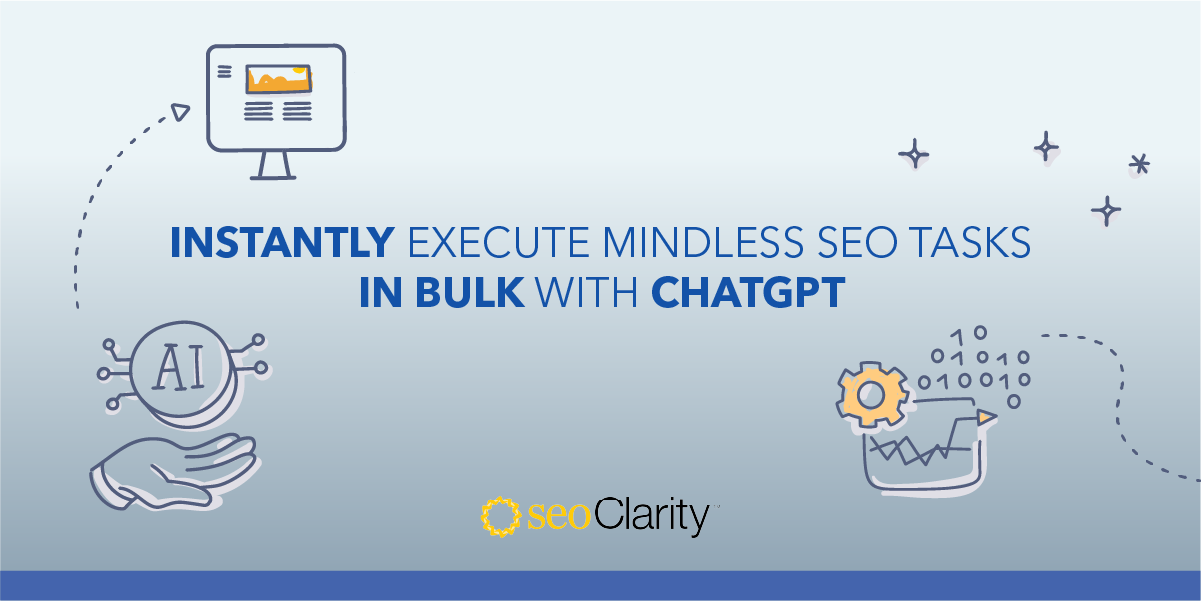In the world of SEO, small teams juggle multiple roles, leading to communication challenges with other digital marketing teams.
Technical experts work to engage IT teams in their projects, while SEOs guide content strategists and writers to create engaging, ranking-worthy content. Then there are paid search teams that contribute their input to landing pages and content, striving for a higher "quality score." The list goes on.
This chaotic situation calls for a solution: data. But when everyone looks at different data sources, unity dies.
Enter the enterprise SEO platform. Providing unified data and seamless collaboration, it empowers organizations to conquer these challenges. Before exploring how an SEO platform brings success to each member of a digital team, let's define what it entails.
Table of Contents:
What Is an Enterprise SEO Platform?
An enterprise SEO platform is sophisticated SEO software that caters to the needs of organizations that seek to improve overall organic search visibility.
It provides a centralized hub for monitoring and analyzing website performance metrics, conducting keyword research, tracking rankings, and identifying opportunities to improve their organic presence in the search engine result pages (SERPs).
With advanced features like competitor analysis, content optimization, and link building tools, an enterprise SEO platform empowers digital teams to make data-driven decisions, streamline workflows, and drive organic traffic to their websites.
How Does an SEO Platform Help Digital Teams?
Commonly, different teams in an organization work with their own data and use different SEO tools, software, and analytics packages. As a result, the findings never align with that of the other teams’.
One of the biggest benefits of having an SEO platform, aside from all the functionality it provides, of course, is having access to a single source of truth.
With an SEO platform, teams don’t have to work with information and data scattered across multiple SEO tools and other data sources. Instead, they can all base their decisions on the same data and gain a complete picture of the marketing performance of the organization.
Recommended Reading: 9 Ways SEOs Bring Value to Every Team in Their Organization
Different Types of SEO Platforms
Choosing a platform can be a challenge, and for one particular reason: there are many different SEO tools that claim to be platforms, although their functionality or product architecture fails to provide the benefit I’ve described above.
For that reason, I believe it’s critical that we discuss briefly the different types of SEO platforms a digital team could use.
There are three types of SEO platforms:
- All-in-One SEO Platforms: as the name suggests, these platform provide all the functionality needed to scale SEO and content strategies. seoClarity is such a platform – we offer all the tools an organization needs to manage all SEO programs.
- Niche SEO tools: platforms that focus on specific tasks. They might still offer a number of capabilities, however, their focus is typically on helping a single department (i.e., SEO, PPC, email, etc.).
- Specific SEO tools: these tools deliver only one functionality. For example, rank tracking tools offer the ability to track rankings, site crawlers provide insights for site audits, and so one. They do not provide data beyond their core functionality.
Each type of SEO platform offers its own benefits. In this article, however, I’m going to show you how the entire team can use an all-in-one platform to drive their SEO strategy and contribute to the company’s overall organic search success.
Recommended Reading: 8 Must-Have Capabilities in an SEO Platform
How to Use an SEO Platform Across the Entire Digital Team
To illustrate the above, let me show you what data different teams can extract from a platform, and what they can subsequently do with it.
Here are the digital teams we’re going to discuss:
Data Scientists
A platform allows data scientists to access and monitor historical organic search result rankings and SEO performance trends, compare those with the competition, and predict their potential impact on the user experience and the content.
Furthermore, data teams can use the platform to understand the impact of Google-owned search features on the company’s search visibility and discover how to pivot or re-target content to benefit from new opportunities.
Data scientists can use insights to forecast traffic and opportunity trends that influence all teams that work with SEO in some way.
Recommended Reading: Using SEO Forecasting: How to Build an SEO Business Case
Data Analysts and Analytics
For a data analyst, access to an SEO platform means being able to use on-demand data about rankings and traffic to identify and flag potential challenges or issues.
Anything can cause potential issues, from search engine algorithm updates to in-house updates that impact the website’s performance.
IT Teams
The website is the IT team’s responsibility. Those people constantly make changes and revise it to improve the UX, UI, content, architecture and more.
The problem? A lot of those activities affect SEO and search visibility.
An SEO platform gives IT teams the ability to crawl both the development and the live version of the site, plus identify and eliminate technical on-site issues before they cause problems.
Content Marketers
Much of today’s SEO revolves around content. Unfortunately, creating SEO-optimized content involves more than just writing.
Content strategists and writers need data to understand the audience’s expectations, the top-ranking content, and what information to include in order to rank.
An SEO platform provides content marketers with data sets, and even the AI-driven ability to distill it into insights that can power even the most demanding content production.
seoClarity, for example, has Content Fusion – our AI-driven content writer that allows writers to create authoritative content without having to be an expert on the subject matter.
User Experience Team
Engagement signals – essentially, the user experience – affect SERP rankings and search performance. Hence the importance of providing a strong UX.
And those teams can find a whole range of data to fuel their strategies within a platform too.
From page speed to organic performance, bounce rate to identifying under-performing pages, UX teams can extract insights to drive their next initiatives and overcome existing user experience challenges.
These insights allow the team to uncover the “what” and “why” at scale like never before.
Paid Search Teams
Even though an SEO platform focuses on the organic channel, it provides information paid search teams will find useful too.
For one, PPC teams can overlay rankings with their ad positions and understand the correlation between the two to reduce spending.
Proper SEO software can also help to identify emerging PPC competitors that can influence the cost per click for their target keywords.
Paid search teams can also use the relationship between organic search and paid search to educate the data analyst, IT, and content teams on what’s not working well (or what is!).
Product Managers
Staying abreast of the competition and their product development is not a small feat.
With a platform, however, product managers can research and identify competitor gaps, and discover what in the product they should invest their time and effort.
Data insights also let them understand performance at the template-, page type-, or product-level to see where there is greater opportunity to improve.
Merchandising Teams
Merchandising teams will find value in SEO software too, especially because of the ranking data paired with ecommerce data that shows trends of which products sell (and if there are any seasonality trends).
These merchandising teams can also see how things like meta titles and meta descriptions affect overall performance.
It’s easy to implement A/B testing in SEO to see which approach results in the best performance and value for the organization.
SEO or Digital Marketing Agency
Many organizations outsource some of the SEO activities to agencies or consultants. This is only natural, given the scope of work required to manage their search programs.
However, as many in-house SEOs who work with agencies will attest, without the single source of truth, such cooperation can be problematic, at best.
A platform gives both the in-house team and their agency access to data at scale.
Both teams can see the website’s performance and compare it with the competition. They also have the chance to dive deep into the competitors’ strategies and collect insights to inform their future activities.
Final Thoughts
When teams work from the same data set and establish a single source of truth, SEO success can push forward like never before.
The only way to establish this baseline is the integration of an SEO platform into your organization’s day-to-day operations.
Working in a large organization and struggling with managing the SEO program across the entire digital team? Book a demo with us and see how the seoClarity SEO platform can help you overcome this problem.
<<Editor's Note: this post was originally published in March 2020 and has since been updated.>>










1 Comment
Click here to read/write comments